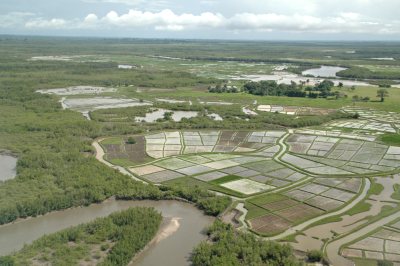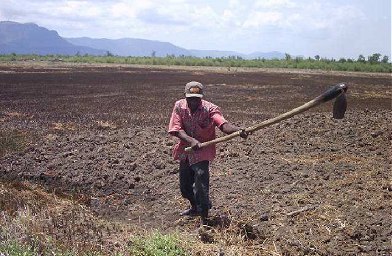Projects in Guinea Bissau
|
|
Unlocking knowledge on mangrove recovery, Guinea Bissau, Tanzania, Indonesia, Philippines, 2019-2023
Wetlands International is the global not-for-profit organisation dedicated to the conservation and restoration of wetlands, their resources and biodiversity. Wetlands International is one of the five founders of the Global Mangrove Alliance and aims to improve knowledge sharing about effective mangrove restoration. It is working with international, national and local partners on best practices, starting in Guinea Bissau, Tanzania, Indonesia and the Philippines. With these best practices they are helping governments create good mangrove policy at landscape level. This will be followed by developing a communication strategy to mobilise the global mangrove community, which will ultimately contribute towards more effective restoration of 30,000 hectares of mangrove area in ten countries. The Turing Foundation is contributing € 300,000 towards this project (of which € 30,000 in 2023). See also:
Wetlands International: other projects
Other projects in Tanzania
Other projects in Indonesia
Other projects in Philippines
Other mangrove projects
 Passing on knowledge about mangrove restoration, Guinea-Bissau, Tanzania, Indonesia and the Philippines |
|
Conserving the biodiversity of the Cacheu Mangroves Natural Park, Guinea-Bissau, 2015-2018
Wetlands International is the global not-for-profit organisation dedicated to the conservation and restoration of wetlands, their resources and biodiversity. Their work in West Africa is focused, amongst other things, on the protection of mangrove areas. Wetlands wants to protect the mangrove nature park Cacheu in Guinea-Bissau by improving the running of the park, restoring this important buffer zone and encouraging sustainable use. In addition to strengthening the park management's capacity, Wetland is working with seven local communities to restore 200 hectares of mangrove forest, and teaching better rice production techniques to prevent further felling of mangrove areas. More understanding is needed about the ecological value and current threats, as well as more community involvement. Communities help the park management directly with conservation by restoring degraded areas and reducing pressure that is exerted on the environment by adopting sustainable alternatives, like improved rice cultivation techniques. The Turing Foundation makes this initiative possible with a contribution of €350,000 (of which €50,000 in 2018). See also:
Conserving Biodiversity of the Cacheu Mangroves National Park at Guinea Bissau
Wetlands International: other projects
Other mangrove projects
 Conserving the biodiversity of the Cacheu Mangroves Natural Park, Guinea-Bissau |
  |
Sustainable manioc cultivation, Ingoré, Guinea Bissau, 2010-2012
Apart from rice, the most important food plants in Guinea-Bissau are manioc, beans and sorghum. Local organisation Acção para o Desenvolvimento promotes the sustainable production of these plants to help land improvement. Pesticides are being replaced by environmentally friendly pest and weed control methods, so nature - especially the important mangroves - can recuperate. A total of 160 farmers from eight villages will be trained in sustainable production. Upon completion of the project, the organisation wants a thousand farmers from 25 other villages to follow this example project. Through IUCN, the Turing Foundation will donate a total of € 44,000 to the project. See also:  harvesting manioc (cassava) |
 |
Improved sustainable rice cultivation, Sangaréyah Bay, Guinée Bissau, 2010-2012
In Guinea-Bissau, local organisations ADEPAG and ODIL are collaborating to (re)introduce the sustainable cultivation of rice. Since the years of cheap, imported Asian rice are over, sustainable cultivation of rice is once again a good investment for farmers. Among other things, this project provides 50 hectares of new rice fields as well as trainings and education for engineers. Eventually, rice produce is supposed to increase to 200 tonnes and so generate a sixfold return on produce. Through IUCN NL, the Turing Foundation will donate € 66,000 to the project. See also:  improved sustainable rice cultivation, Sangaréyah Bay, Guinée Bissau, 2010-2012 |












